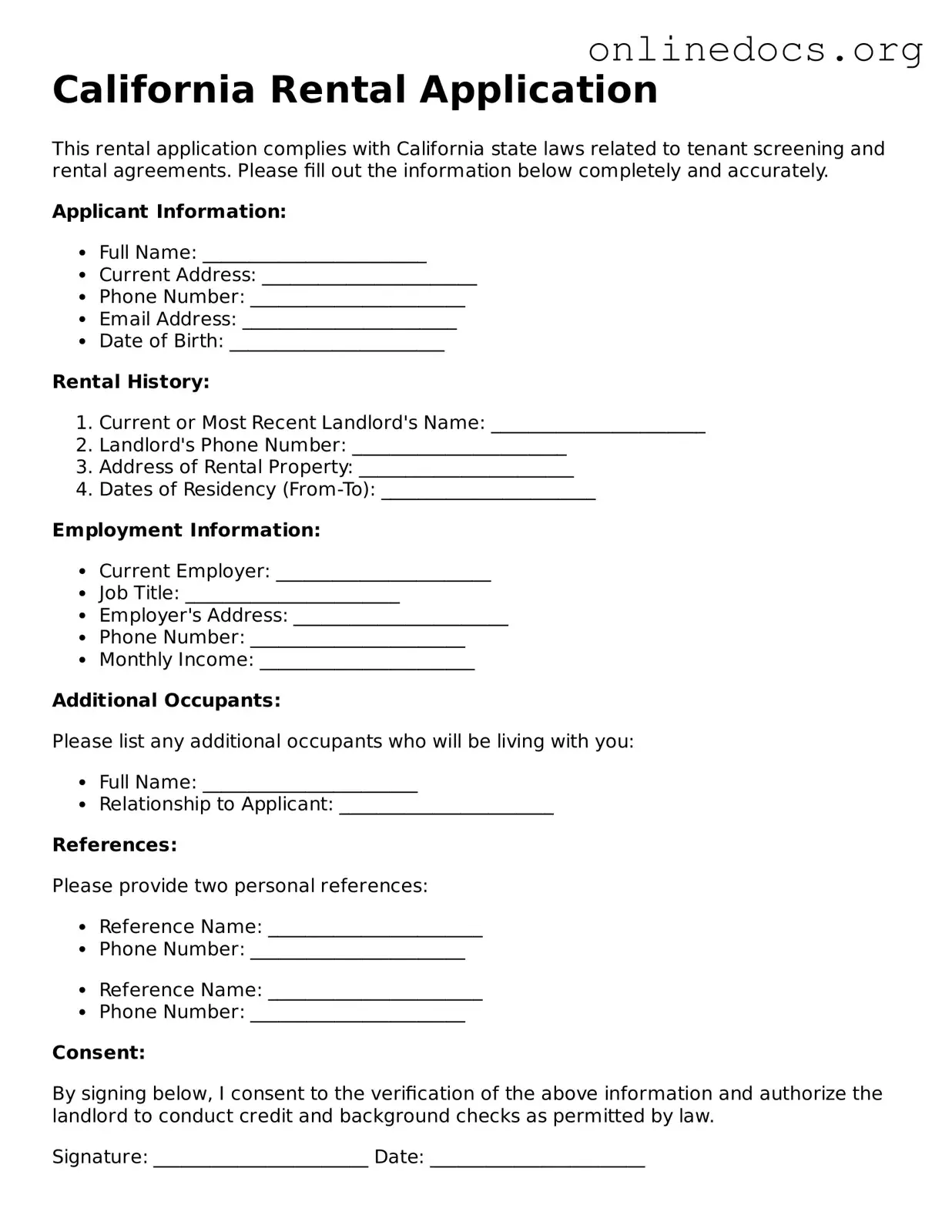Filling out a California Rental Application form can seem straightforward, but many people make common mistakes that can jeopardize their chances of securing a rental. Understanding these pitfalls can help applicants present themselves more favorably to potential landlords.
One frequent mistake is incomplete information. Applicants often skip sections or leave fields blank, thinking it won’t matter. However, landlords rely on this information to assess a candidate’s suitability. Providing complete and accurate details can demonstrate responsibility and reliability.
Another common error is inaccurate information. Some applicants may exaggerate their income or employment history. This can backfire if a landlord verifies the information and finds discrepancies. Honesty is crucial; landlords appreciate transparency and may prefer a truthful applicant over one who appears to embellish their qualifications.
Many people also overlook the importance of timely submissions. Waiting too long to submit the application can result in losing the opportunity to rent a desirable property. Being prompt not only shows enthusiasm but also indicates that the applicant is organized and serious about securing the rental.
Providing outdated references is another mistake to avoid. Applicants should ensure that their references are current and can speak positively about their character and rental history. A recent landlord or employer can provide a more accurate assessment than someone from years ago.
Additionally, failing to disclose pets can lead to significant issues down the line. Many landlords have specific pet policies. If an applicant omits this information, it may result in the termination of the lease or additional fees. Being upfront about pets fosters trust and helps avoid future complications.
Some applicants neglect to review their credit history before applying. A poor credit score can be a red flag for landlords. By checking their credit report in advance, applicants can address any issues or be prepared to explain them during the application process.
Another frequent oversight is not providing identification. Landlords typically require a valid form of ID to verify identity. Failing to include this can delay the application process or result in outright rejection.
Many applicants also forget to read the fine print on the application. Terms and conditions can include important details about fees, policies, and obligations. Understanding these details helps avoid misunderstandings and ensures that applicants know what they’re agreeing to.
Finally, some individuals fail to follow up after submitting their application. A polite inquiry can demonstrate interest and commitment. It also gives applicants a chance to clarify any questions the landlord may have.
Avoiding these common mistakes can significantly improve an applicant's chances of securing a rental in California. By being thorough, honest, and proactive, individuals can present themselves as ideal candidates for any rental opportunity.
